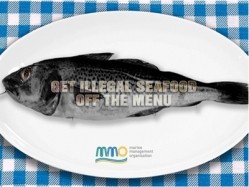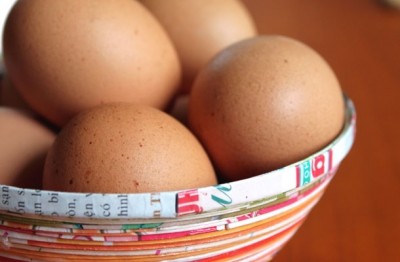Get illegal seafood off the menu, caterers warned

The Marine Management Organisation (MMO) and Food Standards Agency (FSA) together with the British Hospitality Association (BHA) have together launched a campaign asking caterers to check whether the seafood they purchase can be traced to a legal source.
“Caterers should be conscious of the trade in illegal fish caught and sold from unlicensed and unregistered boats,” said Rod Henderson, head of coastal operations for the MMO.
“Such supply chains can have a negative impact – both on the price and availability of a wider range of fish for customers. They can also affect fish stocks, a resource we want to protect for future generations.”
The MMO, FSA and BHA are working to raise awareness of the laws around purchasing of fish and shellfish products - fish caught from unlicensed, unregistered fishing vessels and shellfish harvested from unsafe areas are thought to be being offered for sale direct to the industry.
Increased traceability
Under the Registration of Buyers and Sellers (RBS) Scheme of 2005, it is a criminal offence to buy fish caught from a boat which is not licensed or registered for commercial fishing.
The scheme aims to help fisheries administrations to keep track of the amount of fish species being landed and sold. It also increases traceability of fish, in turn helping the catering industry to obtain the freshest produce.
“We are currently investigating instances of recreational sea anglers fishing for cod on boats off the Yorkshire coast which it’s been alleged they’ve been selling to care homes,” added Henderson.
“We have also had reports of people catching skate and selling this direct to restaurants and cafes on the South East coast. Bass is another species which is also reported to us as being offered for sale illegally, particularly on the South coast.
“If anyone suspects similar activity I’d urge them to let their local MMO office know.”
Contamination standards
Linden Jack, head of the food hygiene policy branch for the FSA, which is responsible for monitoring the shellfish harvesting industry, added: “Shellfish bought from illegal sources will not have been subjected to the checks which ensure it is fit for human consumption.
“Shellfish from approved beds are monitored to ensure they meet standards for microbiological contamination, including E.coli and Salmonella, chemical contamination, as well as algal toxins.
“Consumers will therefore have no guarantee that illegally harvested shellfish is free from such contamination and are risking their health if they eat it.”
The MMO also co-ordinates monitoring of wild fish products imported into the UK estimated at around £1.6 billion of fish per annum. Appropriate documentation must be provided for these imports in order to obtain customs clearance and help ensure these are from legal sources.
John Dyson, food and technical affairs advisor for the BHA, gave his final word of caution for caterers. He said: “It is important that caterers are able to trace the provenance of all the seafood they use. If they have any doubts, they should ask about the source of supplies and report any suspicious activity to either the MMO or the FSA."
More information on the campaign is available from www.bit.ly/rbs-campaign.





















